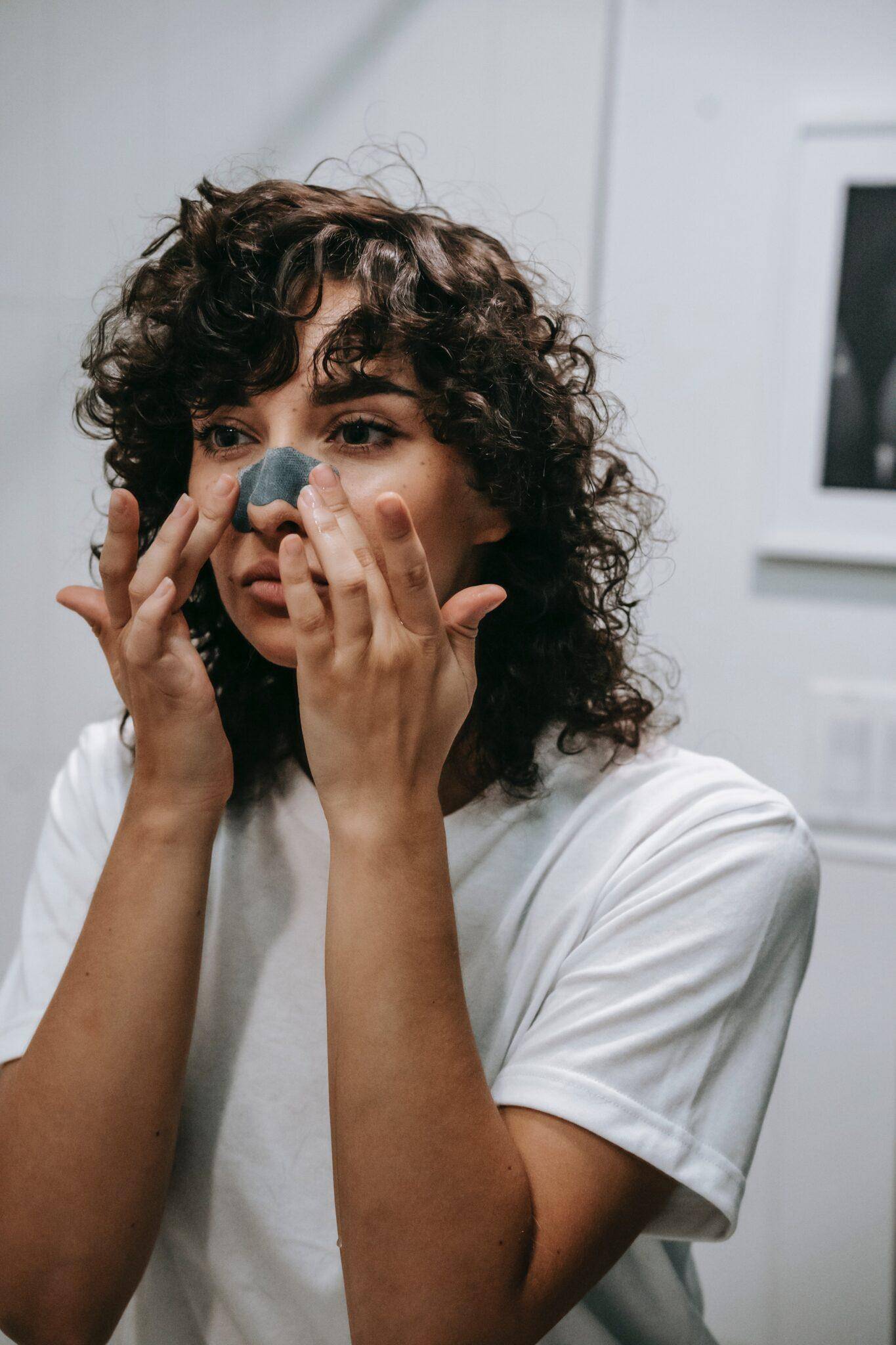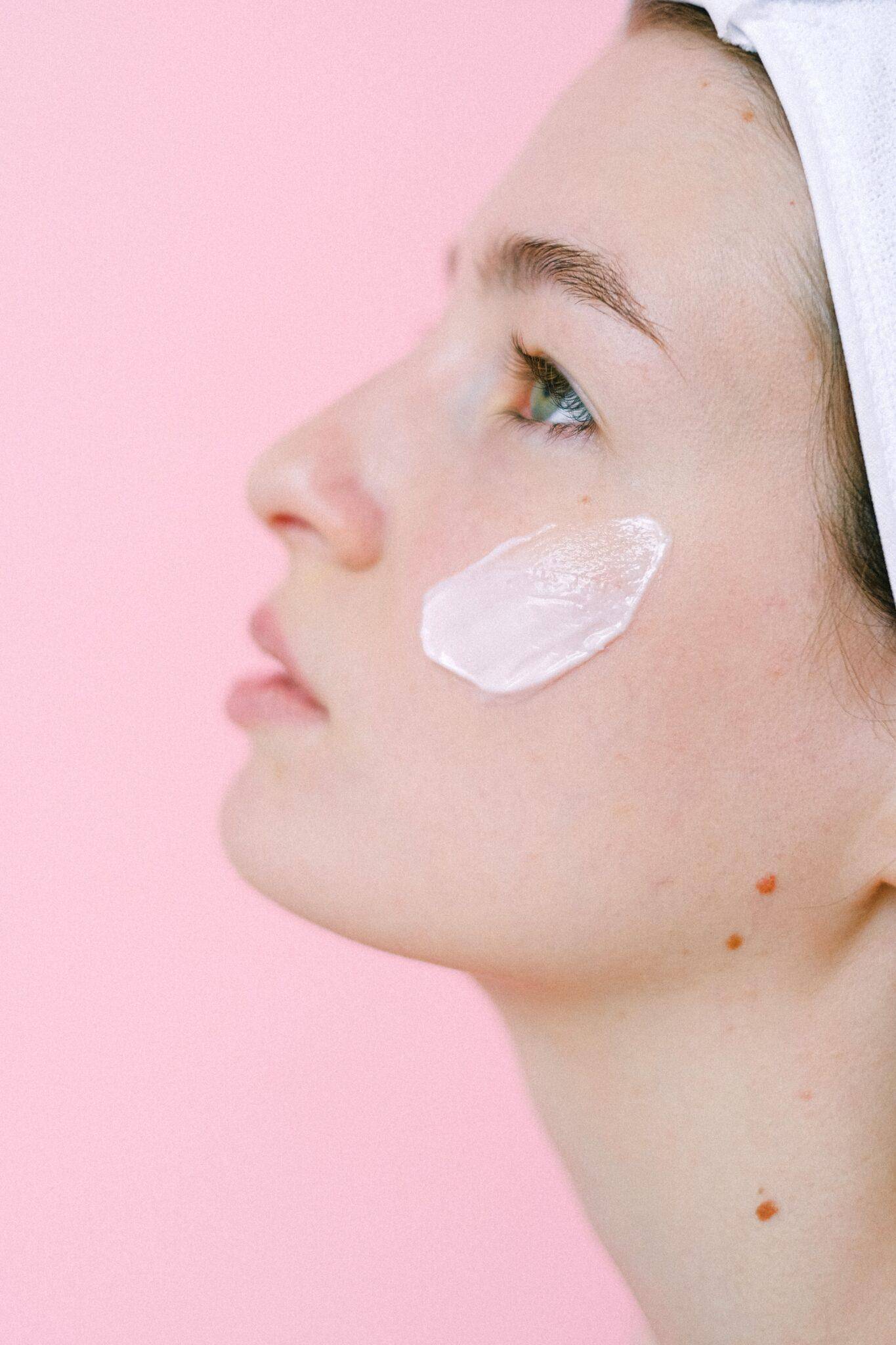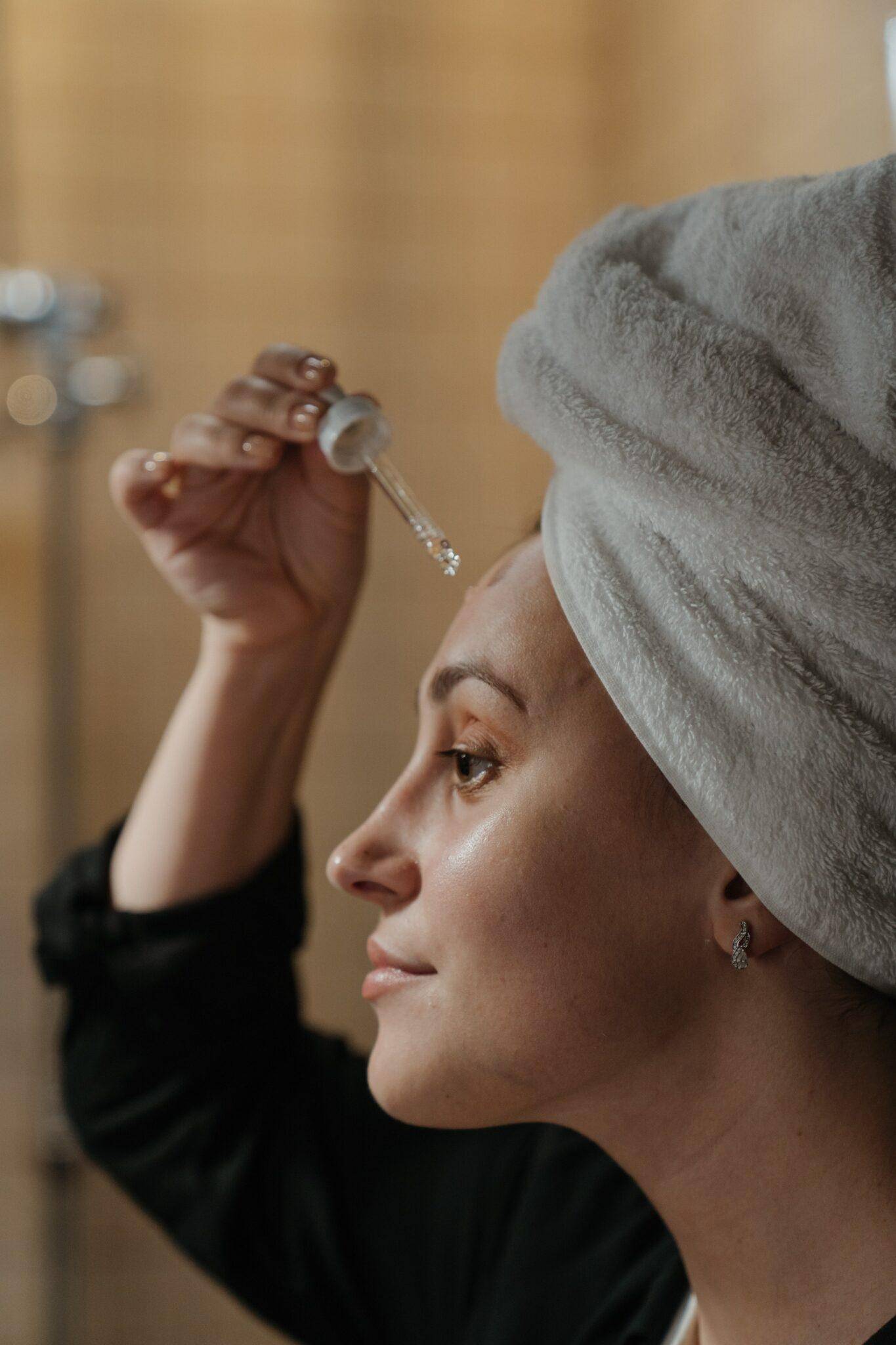Lactic Acid For The Skin
Lactic acid for the skin works like a magical ingredient. We all know it is great to be used for our face but most of you are not aware much of its benefits and what exactly lactic acid is. Lactic acid is basically an alpha hydroxy acid that used in much over-the-counter skincare professional treatments and products.
You might be familiar that it is naturally present inside the milk, although, lactic acid nowadays produced synthetically. It is an amazing ingredient for exfoliating our skin, lighting various spots present on our skin, and reducing the appearance of wrinkles and fine lines.
With such crucial and amazing benefits, why would we not use it? Let’s see some important information on using lactic acid for the skin.
What Is Lactic Acid
You already know it is alpha hydroxy acid, but did you know it is the most popular type f alpha hydroxy acid? Lactic acid for the skin is truly a darling ingredient to be used. It is most extensively used by professionals in their treatments and peels, it is also available over the counter and in cosmeceutical products.
Natural means to find lactic acid is mostly in dairy products. Lactic acid is only the ingredient that provides soured milk and yogurt the distinctive taste they have.
In ancient times when there were no specific products designed that had lactic acid, many people used raw milk and other dairy products to beautiful and their skin and get soft glowy skin. If you are a stan of home remedies and you think they work amazingly well for you. why not try it out?
We all admire Cleopatra and know her for the beauty she was! Legends mention that she bathed regularly in milk to keep her skin as lively and beautiful as it was. Well, it worked quite well for the queen as the milk bath definitely had lactic acid in it.
This does not mean I’m am asking you to hop inside a tub filled with milk, NO! that’s not an option. Although, a milk bath is an excellent way for pampering your skin. Nowadays the majority of lactic acids produced in peels or skincare products are usually synthetic in nature. You can also dab cotton in raw milk to apply on your face.
Health Benefits Of Lactic Acid For The Skin

When it comes to using lactic acid for the skin, you can assume that it has plenty of benefits. Lactic acids help in exfoliating your skin. It will help in wearing the bond between older and dull cells so that they be removed easily once the bond between them dissolves. It will enhance the appearance of new skin cells making your skin healthy.
Lactic acid also stimulates the renewal of new cells and speeds up the process of cell turnover. This process happens on a cellular level but once this process is over and you start using lactic acid for the skin, you will see a brighter complexion with fast and smooth skin.
Lactic acid is immensely popular for two main benefits it has, these are:
- If you start using it regularly, you will witness a real change in the skin’s texture and quality making it look healthy, smooth, and softer.
- It is one of the most popular and gentle alpha hydroxy acids used for skincare.
An alpha hydroxy acid is used widely for the purpose of exfoliating and improving the texture of your skin, but as we talk of lactic acid for the skin, it has some extra benefits attached that are not widely seen in other variants of hydroxy acids. Lactic acids can be used to improve the natural moisture factor of the skin making your skin hydrated without applying any products. Basically, it means that lactic acid will help in keeping the skin hydrated. moisturized, and less dried.
When we use lactic acid for the skin on a regular basis, it can also help in slowing down the aging process, which is indeed a great factor and many companies are using it in their anti-aging creams. It does so by stimulating the production and renewal of collagen which is responsible for keeping the skin healthy and firm.
Lactic acid also helps in getting rid of hyperpigmentation caused by the sun or aging along with wrinkles and fine lines. But, lactic acid cannot improve the deeper lines. The most interesting thing to note here is that lactic acid for the skin is amazing but it is also the star ingredient in OTC lotions and keratosis pilaris creams. The chicken skin bums located on the back of your arm can also be treated using this.
When you use lactic acid it helps dissolve the plug of cells in your skin that usually builds up around the follicles of hair, this will evenly smooth out your skin and reduce bumpiness.
Not only it has numerous health benefits, but lactic acid is also used in topical treatments for the treatment of serious skin conditions like eczema, rosacea, and psoriasis. However, if you have any of these severe health conditions it is highly recommended that you speak to the doctor you are taking treatment from before deciding to include lactic acid for the skin in your regimen.
Side Effects Of Lactic Acid For The Skin

As we have already mentioned that lectic acid is gentle on the skin as compared to other alpha hydroxy acids like mandelic acid and glycolic acid, there are still few drawbacks of using lactic acid for the skin. Let’s see what are the possible drawbacks of using lactic acid for the skin.
Sensitivity From The Sun
This is probably the most crucial thing that needs to be noted down before starting with lactic acid for the skin. Lactic acid is known to make our skin very sensitive to UV light from the sun. As the lactic acid sloughs away cells in your skin, the new cells arising become somewhat more sensitive to the sun and your skin might be damaged. Although, you can wear sunscreens having high sun protection factor or avoid the sun completely when you use them.
Once you have started using lactic acid for the skin, make sure you are committing to everything that can give you protection from sun rays. This does not mean you will only follow the important things on the day you have applied lactic acid, it simply means you have to create a protective shield every day.
According to some reports, sensitivity to the sun can even last for 2 weeks or 1 month after you have stopped using lactic acid peels or other products made out of lactic acid.
You have to use SPF creams having a 30 or higher sun protection factor. If you are not taking utmost care, you will be making your skin appear worse and the issues you are trying to cure using lactic acid may worsen. So follow all the necessary steps to protect yourself.
Skin Irritation
Other than extreme sensitivity to the sun, lactic acid might also cause irritation in the skin. If you are using it, look for the following things on your skin:
- Swelling
- itchy skin
- redness
- peeling
- burning
- dryness
Having little burning sensation, itching, and minor redness is pretty common in the initial days when you start using products having lactic acid. This is so mild that after 1 or 2 hours of applying the product, it generally vanishes on its own. You are completely fine if it goes away so soon.
If the allergic reaction to lactic acid initially is moderate to severe, you can expect the redness or itching sensations to stay for few weeks. If you notice rashes or selling, try to wash them as soon as you see them. Do not use the products as it may happen again. Try to contact your doctor if you see severe reactions to using lactic acid for the skin.
Note:
Lactic acid is basically the gentlest known alpha hydroxy acids present in skincare industries so many people over the years have used it without reporting any issues. Still, we cannot avoid the reasons given above that makes us want to avoid using lactic acid for the skin as our skin is really delicate and sensitive to other parts of the body.
Have you ever used Retinol or retinoids like Refissa or Retin-A? these retinoid products are already exfoliating in nature. If you are using any retinoid products you do not have to use lactic acid along with it as both are exfoliating in nature, there is no need to double ingredients that perform the same function. If you overuse or use both these together, you will only over-sanitize the skin.
Many people think that having ultra-sensitive skin also precludes them from using lactic acid for the skin, it does not have to be so. You just have to take extra precautions and find out if it is working well with your ski or not. Try experimenting using a product that has low lactic acid content or percentage and then gradually you can increase it. Try to monitor the skin very carefully and stop using it if you feel it is not working or making your skin look bad.
How To Use Lactic Acid For The Skin

The products you see over the counter differ highly in the amount of lactic acid present inside each one of them, the variation may range from 5% lactic acid to 30% or even higher than this. Using a higher percentage in the initial days is not a good idea to start your journey. By jumping right into products having a higher percentage of lactic acid you are only going to disbalance the normal pH of the skin and make it more irritated.
If you have ever tried using lactic acid for the skin from over the counter, start off with products having a very low amount of lactic acid. As low as 5% to start and reach up to 10% after few weeks. This will enable you to figure out how lactic acid is working for your skin and your skin will get used to lactic acid so you can increase the concentration slowly and gradually.
Also, if you are happy with any product that you have used, do not increase the concentration, because it might already be the best concentration that suits your skin type.
As far as you are concerned about what type of products to be used for lactic acid for the skin, you have got many different options to consider. Have a look at the given information.
Lactic Acid For The Skin In Form Of Cleansers
Using lactic acid cleansers in your routine has become one of the easiest ways to incorporate them into your skincare regimen or routine. You just have to apply and use them as you have been using your regular cleansers till now. It is suggested to avoid areas such as the area below your eyes which is highly sensitive because lactic acid cleansers have a habit of behaving in such a manner that it will irritate your delicate eyelids leaving them flaky, dried, and red.
Using lectin acid for the skin in the form of cleansers is a good choice for people having sensitive skin because in this way you will easily rinse them off instead of allowing them to sit on your skin for a long time thus it will help in limiting any type of radiation.
Serums, Lotions, Or Creams
For treatments or usage of lactic acid where you have to leave it for some time on your skin like creams or lotions or maybe serums, most people suggest applying such creams at night rather than applying in the day time because you will not have to avoid sun throughout the day and it will prevent from potential damage from Uv radiations. Although you still have to use an SPF cream while you wake up to leave your home.
If you have started using it and your skin seems irritated with its usage, just scale back and use it less than what you are using now. Reduce the usage to once or twice a week to see if some changes are there on your skin or not.
Masks And Peel At Home
Using lactic acid for the skin in form of peels or masks provides a stronger burst of exfoliatin to the ski and they usually have a higher concentration of lactic acid in them as compared to other products. Using them daily is the worst you can do on your skin as it will eventually break the protecting layers of skin. You can use these once to thrice a week or as per the directions and number mentioned on their label.
At-home lactic acid masks and peels usually have the strength of lactic acid between 10% to 30%. Again, if it is your first time for lactic acids for the skin, just try the lower concentrations first and if they suit you well, proceed for the higher concentrations or stop there itself.
You might even find a lot of professional lactic acid peels at the market or over the counter having strength up to 50%. Generally, the pH of such products is buffered as compared to those you get by the hands of any pro, but you may still get into trouble by using such strong strength of lactic acid on the skin. It is better if you leave using stronger peels to the profession itself and do not try by yourself at home.
Lactic Acid Peels By Professionals
You can get your professional lactic acid peels done at any local spa, dermatologist, medical spa, or cosmetic surgery office also. The peels provided by a professional at the spa usually have lactic acid strength ranging from 30% to 88%. It is quite high.
There are some peels called superficial chemicals peels and you can get these done by the esthetician. Medical doctors usually do deeper peels. The doctor will first decide which strength should be given to your skin and then it will be done initially. Depending upon your skin’s need, they might increase the strength or keep it as it is.
Also, you cannot expect to get the peels done once. There will be a series of subsequent peels to receive utmost benefits from these peels. Pro lactic peels have a good chance to treat your signs of aging, dark spots, or issues with skin textures.
The Bottom Line
By now you have understood how lactic acid for the skin works and the various benefits it has. It is an incredible alpha-hydroxy treatment having a safety record. It might be problematic to some people, but mostly it has behaved decently for many skin types and skin conditions. You just have to listen to what your skin is feeling and follow the directions given on the labels of OTC products. Do not push the treatment too strong and too fast.
You are most likely to receive amazing benefits once you start using lactic acid for the skin. The key or most important thing that must be present in your mind while using any product be it lotion, peel, or serum is that you need to protect yourself from sun rays. Direct exposure to the sun can cause a lot of damage as your skin is highly sensitive.
Even if it is freezing outside, you still need to have your sunscreen covered everything for you once you have started using lactic acid for the skin. This is an amazing way to protect your skin from sun spots, premature aging, and somewhat from skin cancer too (one of the main reasons for skin cancer is sun rays).
It is one of the easiest and healthiest ways to keep your skin naturally glowy and soft. If you have some important questions and queries in your mind about any product or your skin type, it is always a good option that you talk to your dermatologist before using one.

